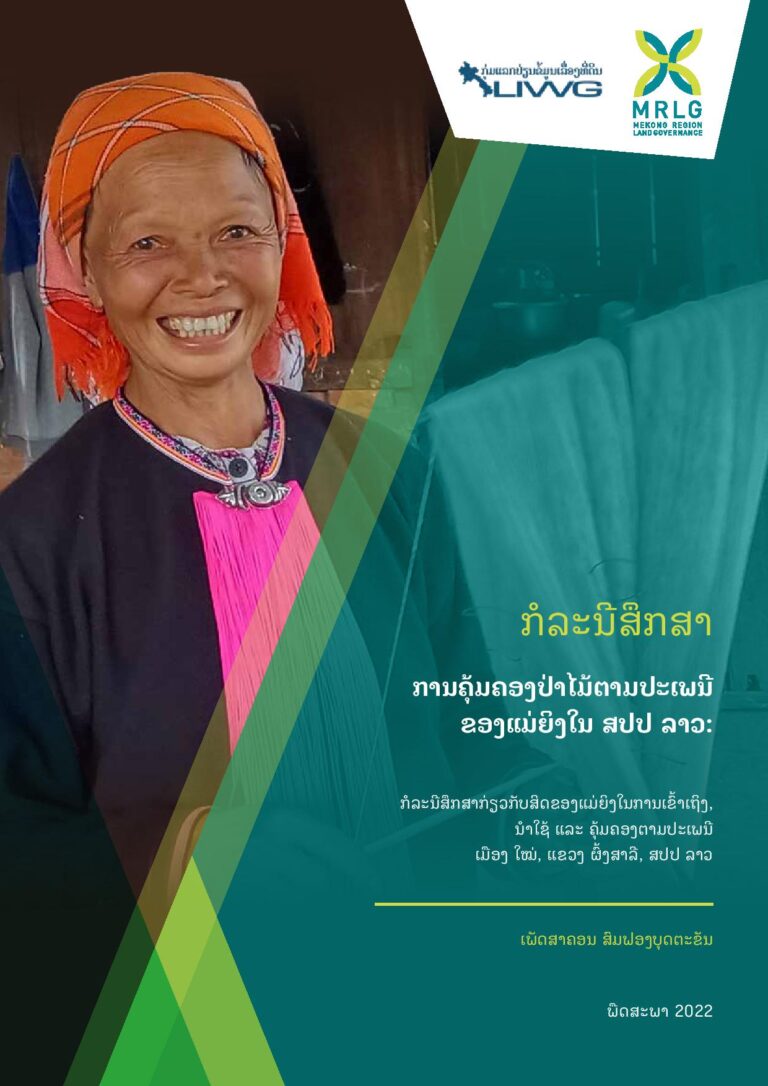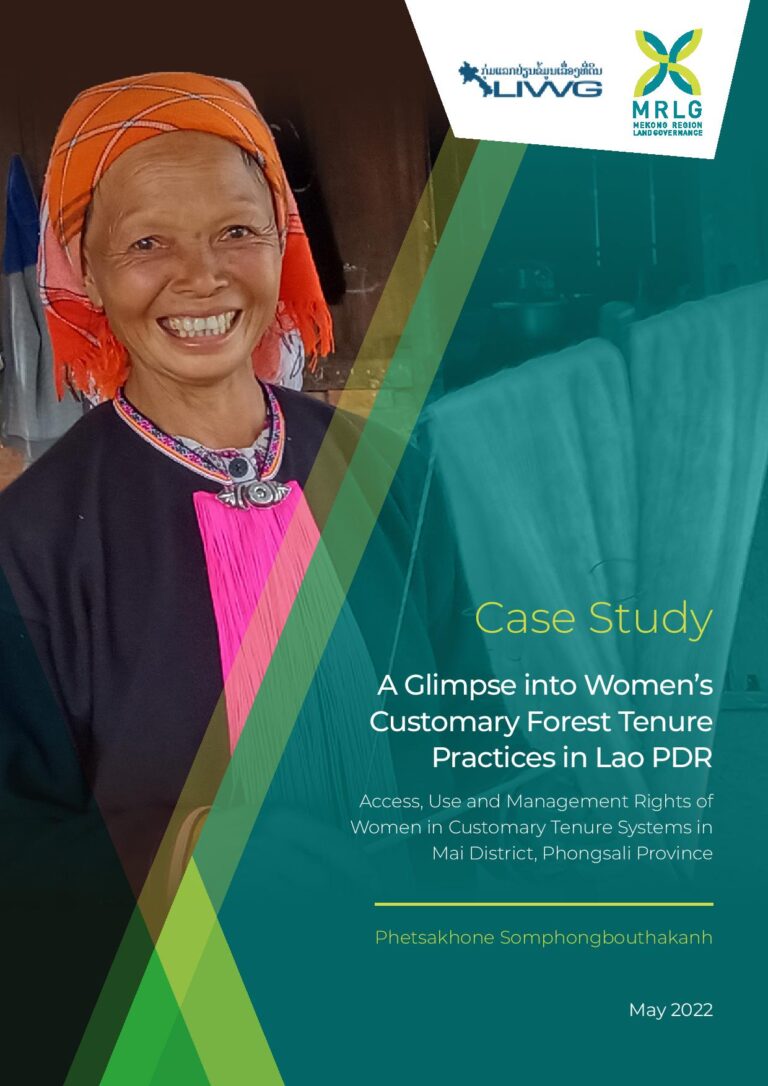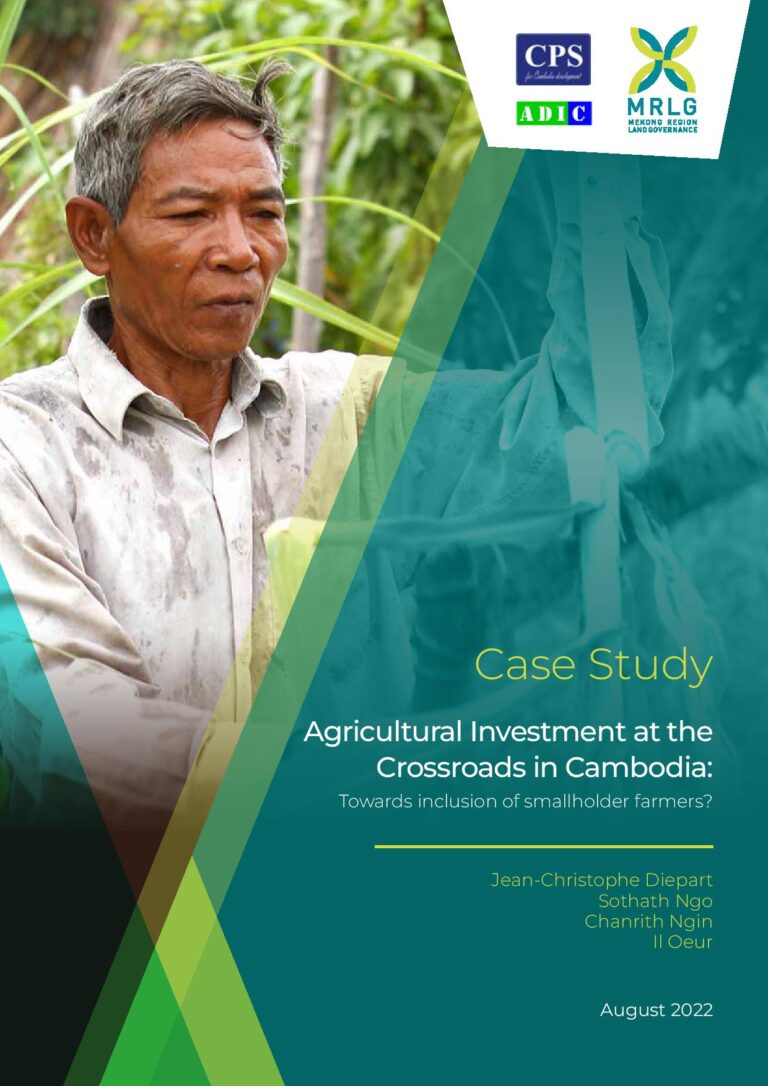Location
Project Description
Land governance is at the center of development challenges in Cambodia, Laos, Myanmar and Vietnam. Governments are revising land policies and practices in order to face these challenges. The project aims to (i) assist the emergence of more favorable policies and practices for securing the rights and access of family farmers to land and natural resources; and (ii) to strengthen the effectiveness of concerned stakeholders through learning, alliance building and regional cooperation.
The MLRG project is based in Laos, with local offices in three other countries: Cambodia, Myanmar, and Vietnam. It supports a wide range of activities (training, exchanges, case studies, focused research, documentation, workshops and seminars) at local, national and regional levels.
The MRLG can support initiatives through three component windows, the first is a learning and advocacy ongoing activity platform supported by National Facilitators in each country. The second two are funded through our Grant Facility open to all stakeholders based on demand and proposals prepared. A short term and immediate response window is the Quick Disbursement Fund (QDF). The second longer term and competitive proposal process is the Innovation Fund (IF). The learning and advocacy activity platform prepared on an annual basis in consultation with stakeholders to organize information collection, analysis, and dissemination, and for horizontal learning and structured learning visits, coaching and pairing, training and organizational strengthening, at the national and regional level.
Members:
Resources
Displaying 6 - 10 of 110Gender, tenure and customary practices in forest landscapes
This report is based on 10 research projects carried out in 18 sites in seven countries: Cambodia, Indonesia, Lao PDR, Myanmar, Nepal, Thailand and Viet Nam. The studies formed the basis of ten informational briefs from the research sites published together with the report (available here: https://www.recoftc.org/publications/0000432). Each study documented the legal frameworks and customary practices that affect indigenous women’s rights to access and manage forest resources and create restrictions on those rights.
Pathways for the recognition of customary forest tenure in the Mekong region
Globally, about 2 billion people claim ownership of their homes and lands through a customary tenure system. Customary tenure has long been insecure and is under growing pressure in many places. But it is also increasingly recognized through a variety of mechanisms, formal and informal. RECOFTC released a new report on the recognition of customary tenure of communities living in forested landscapes in Cambodia, Lao People’s Democratic Republic, Myanmar and Viet Nam. It also includes a case study from Thailand.
A Glimpse into Women’s Customary Forest Tenure Practices in Lao PDR:Lao Version
The case study explores the intersect between customary tenure systems and gender roles in two villages in Phongsali district in the north of Laos. The country has a diverse population of ethnic communities who depend on forests and other natural resources for their livelihoods. These communities play an important role for conserving complex landscapes. However, their traditional land tenure practices are insufficiently documented and therefore poorly understood, and even more so the gender relations in customary systems.
A Glimpse into Women’s Customary Forest Tenure Practices in Lao PDR
The case study explores the intersect between customary tenure systems and gender roles in two villages in Phongsali district in the north of Laos. The country has a diverse population of ethnic communities who depend on forests and other natural resources for their livelihoods. These communities play an important role for conserving complex landscapes. However, their traditional land tenure practices are insufficiently documented and therefore poorly understood, and even more so the gender relations in customary systems.
Agricultural investment at the crossroads in Cambodia:
Agricultural investment at the crossroads in Cambodia: Towards inclusion of smallholder farmers?






